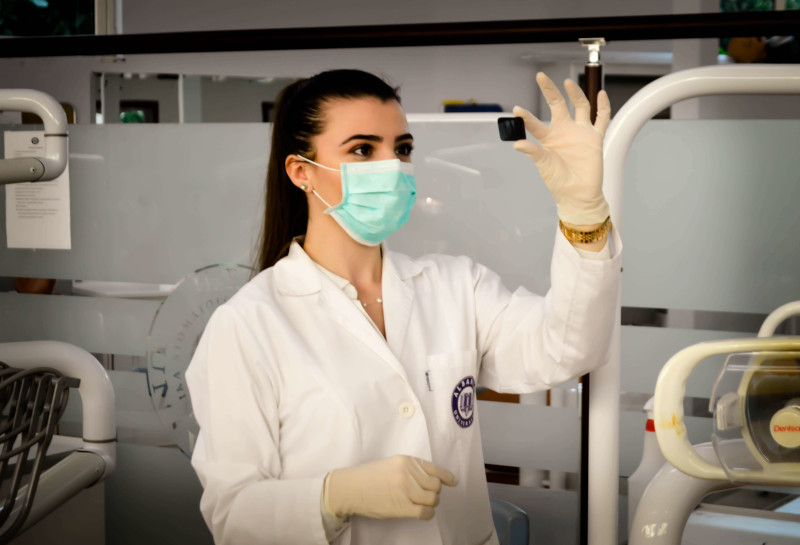Closing the Loop is Essential for Patient Safety

Scenario: You don’t feel well, and you visit your primary care provider, who recommends further labs tests in order to diagnose your problem. You diligently get the lab work done.
And then you wait. A week passes, then another, and now it’s been months.
You don’t feel much better, but you’ve learned to live with your discomfort, and in fact, you are relieved you didn’t hear back from the doctor. No news is good news after all, right?
One morning, however, you awaken feeling miserable and get a same day visit with your doctor. Upon reviewing your chart, your PCP notices that you did, indeed, have an abnormal test result months earlier, but no one followed up with you. So, you’ve been suffering unnecessarily for months, potentially exacerbating your medical condition.
This is a classic example of “open loop” communication. The test result was in the doctor’s office, and no one told the patient. Closed loop communication is a much safer way to communicate important information. The hallmark of closed loop communication is that every communication must be directed to a specified person and is not considered complete until that person acknowledges (or even repeats) the substance of the communication.
In the above example, the test result must be communicated to the patient directly, and the job isn’t done until the patient acknowledges receipt of the test result and its significance. That closes the loop.
Failure to close the loop on communication is considered a diagnostic error.
According to a recent article in Quick Safety titled Advancing safety with closed-loop communication of test results, The National Academy of Medicine has developed a patient-centered definition of diagnostic error, which includes the failure to:
(a) establish an accurate and timely explanation of the patient’s health problem(s); or
(b) communicate that explanation to the patient.
Furthermore, diagnostic errors are a leading safety concern. They happen frequently, can have harmful consequences to the patient, and often prove costly. The article cites a study by Singh et al. that “estimates that approximately 1 in 20 U.S. adults will have a diagnostic error annually in the outpatient setting.”
Aware of this problem, The Joint Commission (which accredits U.S. Hospitals based upon assessment of various performance standards) set goals back in 2005 for timely reporting of test results. And yet, here we are, 16 years later, with the same problem on our hands.
How can health care providers improve closed-loop communication?
Reducing diagnostic error requires a multi-disciplinary approach. The following suggestions “aim to get the correct patient information to the right individuals – including the patient – and allow for a timely response to close the loop”:
- Identify holes that exist in handling test results and sharing information with patients
- Develop procedures that get test results to the doctor who is responsible for care
- Communicate verbally with patients about test results (especially life-threatening ones)
- Have a backup plan or provider to ensure timely communication
- Enhance IT capacity, so that it can communicate test results
- Improve patient portals, so that patients have access not only to test results and information, but also to “support services needed for action and follow up” (However, improved portals do not eliminate the need for other means of communication, especially in serious or life-threatening situations or in situations where patients do not have access to computers.)
- Follow up on the follow up if test results have “remained unacknowledged”
We are lucky to have an array of medical testing at our disposal that allows physicians to diagnose their patients’ illnesses and provide adequate care. The challenge lies in communicating the information between all the necessary parties. And while it is clear that there are some specific strategies to close the loop, it is also clear that these preventable medical errors still exist.
If your doctor orders tests and tells you, “we’ll call you if anything is wrong,” you should politely tell your doctor you would prefer to have someone from the office call and provide the results (whether normal or abnormal), just so that you can “close the loop.”
Closed-loop communication and The Eisen Law Firm
The Eisen Law Firm has been fighting for patient safety and patient rights for years. Many (maybe even most) of the medical errors we have seen are the result of poor communication somewhere along the line from patient evaluation to diagnosis to treatment. We can help you determine whether the medical error that caused your injury was the result of a breakdown in communication and where that breakdown occurred, so that together we can hold accountable those who are responsible. We have proven experience with communication errors and medical malpractice.
If you or someone you love has been the victim of a medical error, call our experienced Cleveland malpractice lawyers to discuss your options for legal recourse and for obtaining the compensation you deserve. To schedule your free consultation, call 216-287-0900 or contact us online today.




